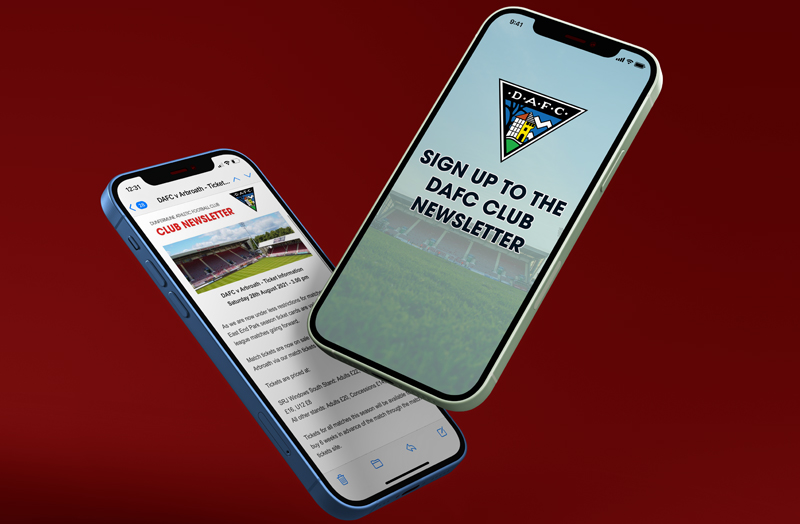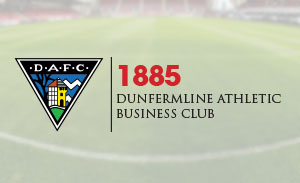Eddie Connachan (27.08.1935 - 28.01.2021)
Friday, 29th Jan 2021Eddie Connachan passed away on Thursday 28 January 2021 at East London in South Africa.
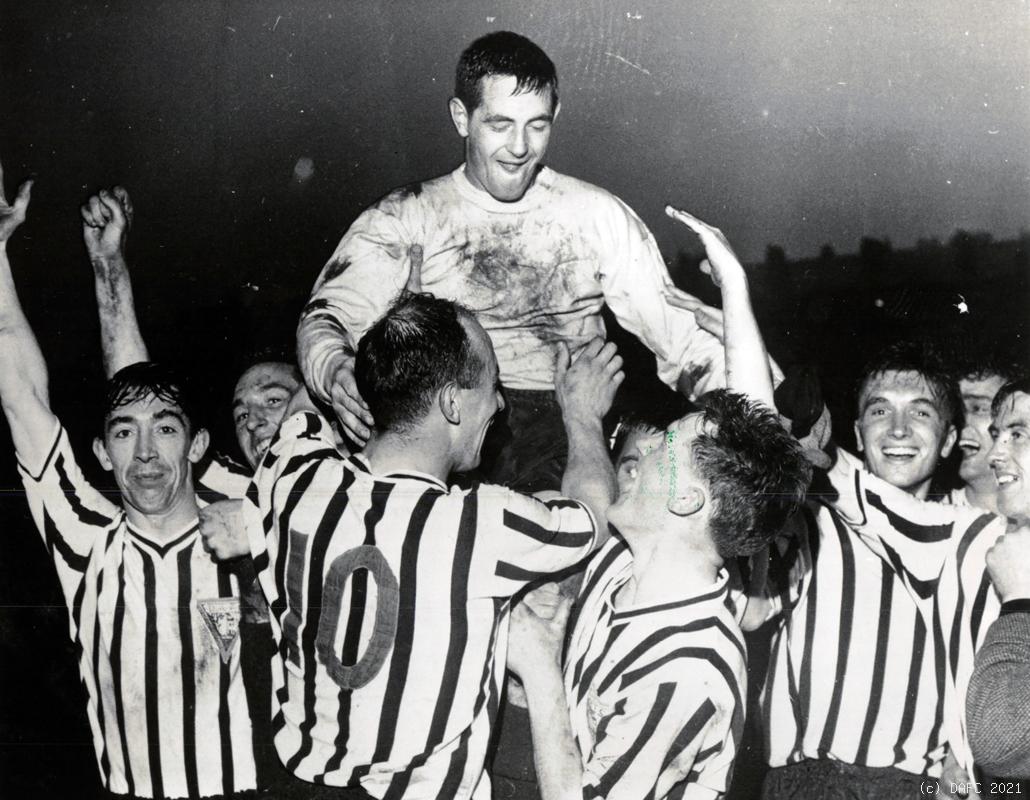
The directors, staff, players and supporters of Dunfermline Athletic Football Club are deeply saddened to learn of the death of one of the club’s greatest football players. Eddie Connachan passed away on Thursday 28 January 2021 at East London in South Africa.
The 1961 Scottish Cup Final saw Eddie Connachan produce the performance of a lifetime, a match-winning exhibition of goalkeeping still regarded by many as the greatest ever seen at that stage of the competition. Celtic legend Billy McNeill later remarked, “I have never seen anything like it…..he broke our hearts.” As Eddie’s good friend John McNeill and sponsor at Eddie’s Hall of Fame induction in 2007 said, “You created the dream for us,” and in so many ways he did just that because Dunfermline Athletic didn’t looked back after that Cup Final win and would never again be looked at as a middle-of-the-road Second Division team. Not bad for somebody, who, as a youngster, didn’t think he had what it took to be a goalkeeper.
Born in Prestonpans on 27th August 1935, Eddie was brought up as a Celtic supporter and was an enthusiastic footballer, although he preferred to play on the wing as he believed all goalkeepers to be extroverts and, as a shy lad, didn’t want to stand out. It was only after his grandfather took him to a match at Celtic Park, as a special treat, that Eddie changed his mind. During that game, he couldn’t take his eyes off Willie Miller, the Celtic and Scotland goalkeeper, and after being told that Miller was a quiet, modest individual, Eddie realised that he could aspire to playing in goal after all. However, as Eddie himself pointed out in a 2007 interview, the whole idea of goalkeeping came from an unexpected call off:
“I played as striker with St Gabriel’s Boys Club in Prestonpans and went up to trial for Edinburgh Norton 17s. Their goalkeeper had called off and my cousin who played for them said, `Eddie will play in goals then`. I saved a penalty and after that I was a goalkeeper.”
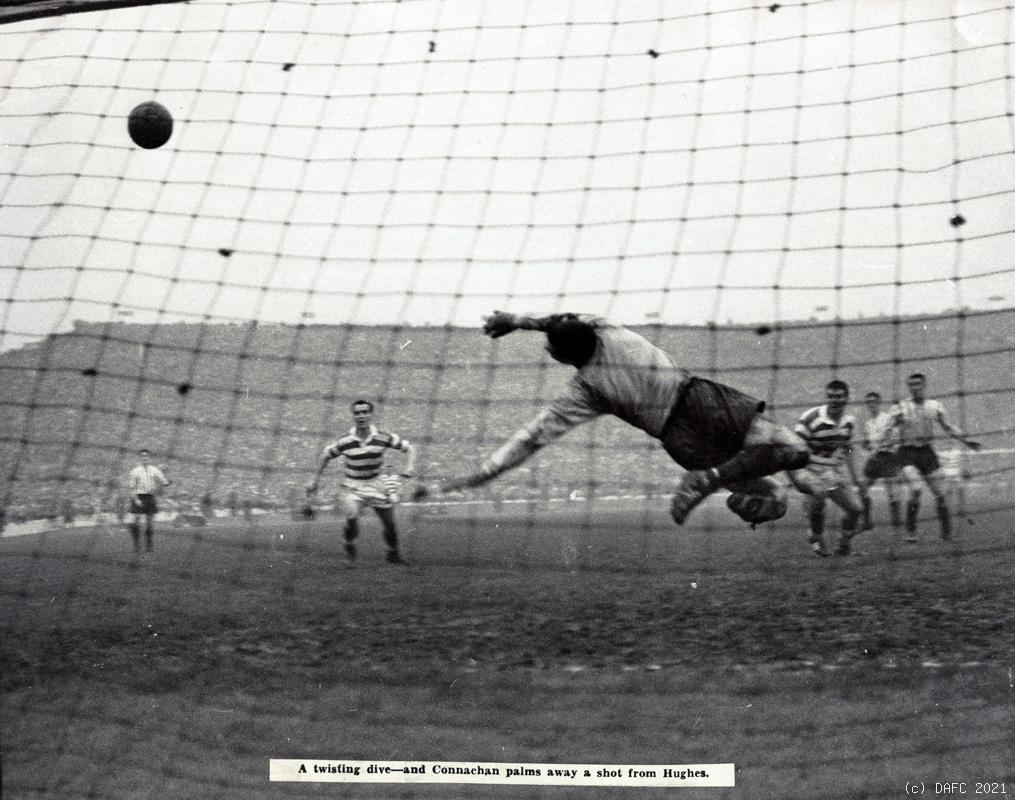
While working as a miner at Prestongrange Colliery, Eddie played for junior side Dalkeith Thistle and showed enough potential to earn a couple of trials for Clyde. Nothing came of this, however, and he was considering giving up the game when he received an offer from Dunfermline manager Andy Dickson. Eddie duly signed for the Pars on 28th April 1957, the night before a home defeat by Rangers ensured the club’s relegation.
As he described to us in an interview in 2007, his Dunfermline introduction – a debut for the Reserves in the East of Scotland League at Chirnside - was a bit special!
"The day I signed for Dunfermline with Andy Dickson as Manager Dunfermline lost 2-1 to Rangers that night but I had already signed. I could have gone to Dundee or Clyde at that time but I liked Dunfermline. At the beginning of the next season we only had eleven players with two goalkeepers in that eleven - Bill Beaton played in goals and I played outside left. We didn`t have a reserve league then because we had been relegated to the Second Division."
Eddie learnt the ropes behind first choice ‘keeper Bill Beaton for over a year before finally earning his chance when Beaton was sold to Aston Villa, making his debut on 11th October 1958 in a 1-1 draw at Kilmarnock. As the Pars struggled against relegation once again, Eddie took part in some memorable matches, none more so than the dramatic 10-1 hammering of Partick Thistle on the last day of the 1958/59 season which helped keep Dunfermline in the top flight.
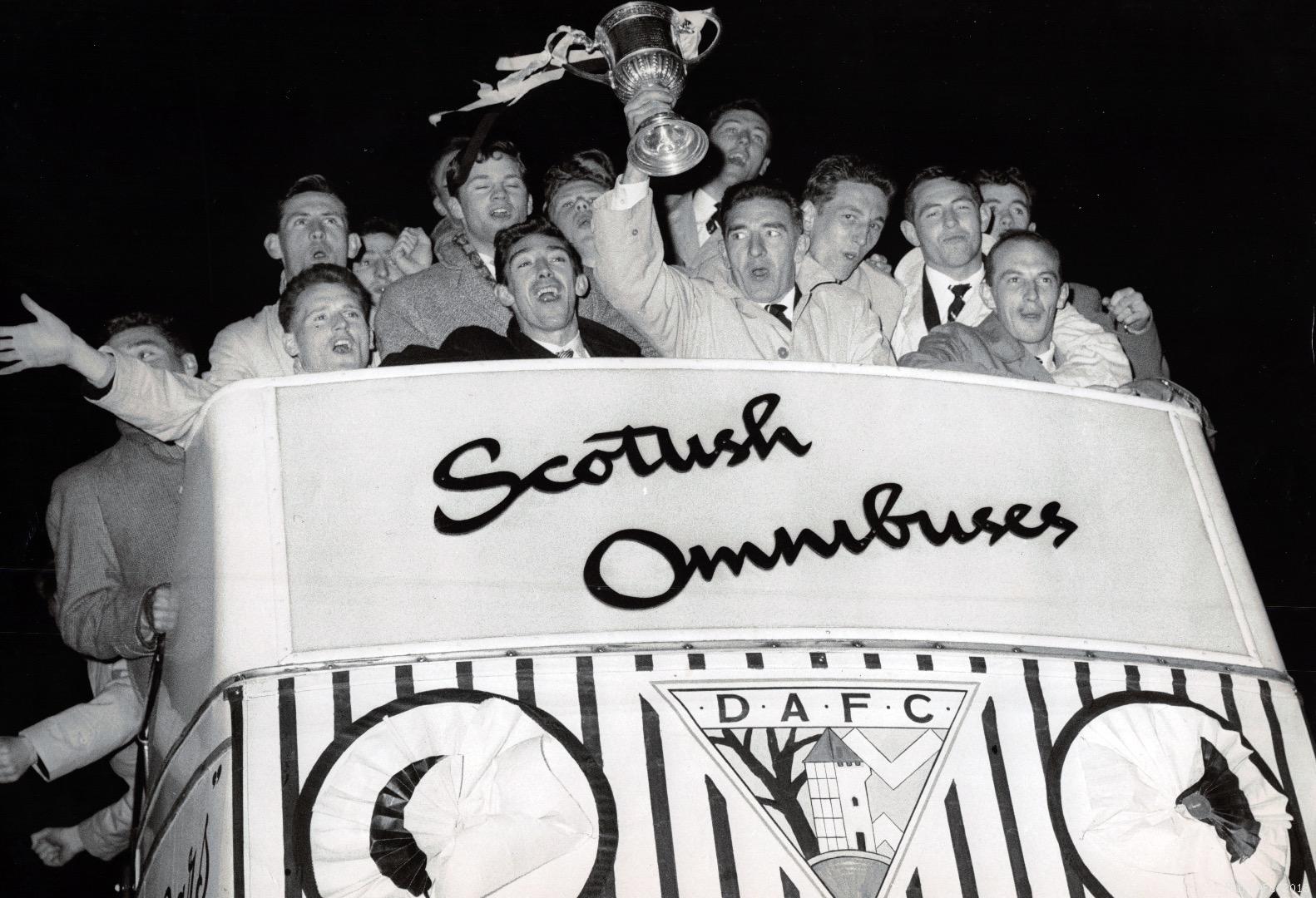
A year later, Jock Stein’s first match in charge saw the Pars defeat Celtic 3-2 and embark on a run of six successive wins that meant the drop was avoided again. Stein’s arrival transformed the club but it looked for a while as if Eddie’s fortunes were also to change, but for the worse. A loss of form midway through 1960/61, attributed by Eddie to his work as a miner, had seen him replaced in the team by Jim Herriot. However, it proved a blessing in disguise as, alongside him in the reserves was Jimmy Wardhaugh, a Hearts legend who was playing out his final season helping the youngsters at East End Park. The man who had scored a record number of goals for the Tynecastle club now came to Eddie’s aid with invaluable advice on how to stop them.
First choice `keeper for the best part of two seasons, Eddie faced strong competition from Jim Herriot in 1960/61 and was only restored to the team for the Scottish Cup quarter-final. Five consecutive clean sheets played a vital part in bringing the trophy back to Dunfermline for the first time but it was his two performances against Celtic in the Final that turned the miner into a legend. A string of magnificent saves inspired the Pars to a shock victory and, in recognition of his part in the drama, his teammates carried him from the field shoulder-high.
As a guest of Pars hospitality in February 2007, Eddie described to Jim Leishman the importance of Jock Stein to his playing career:
"You had a feeling with him. His approach to the whole game; we weren`t used to a Manager coming in and saying this is what you do, this team plays like that. Stein knew what the opposition would do; he knew the Celtic guys. In the replay game he told John Sweeney to sit on Willie Fernie and he played him right out of the game."
He added after paying tribute to Chairman Andrew Watson, secretary Jimmy McConville and trainer Jimmy Stevenson:
“To the 61 Cup winning side Stein brought in John Lunn and Willie Callaghan. Stein made it into a family, all the guys were mates, it didn`t matter who you were with you enjoyed each other’s company. There were no cliques and the relationships were all very good. None of the Edinburgh guys felt it, none of the Glasgow guys felt it and then you had the Fife guys. Three types except Willie Cunningham, he was Irish and nobody knew what he was talking about anyway!"
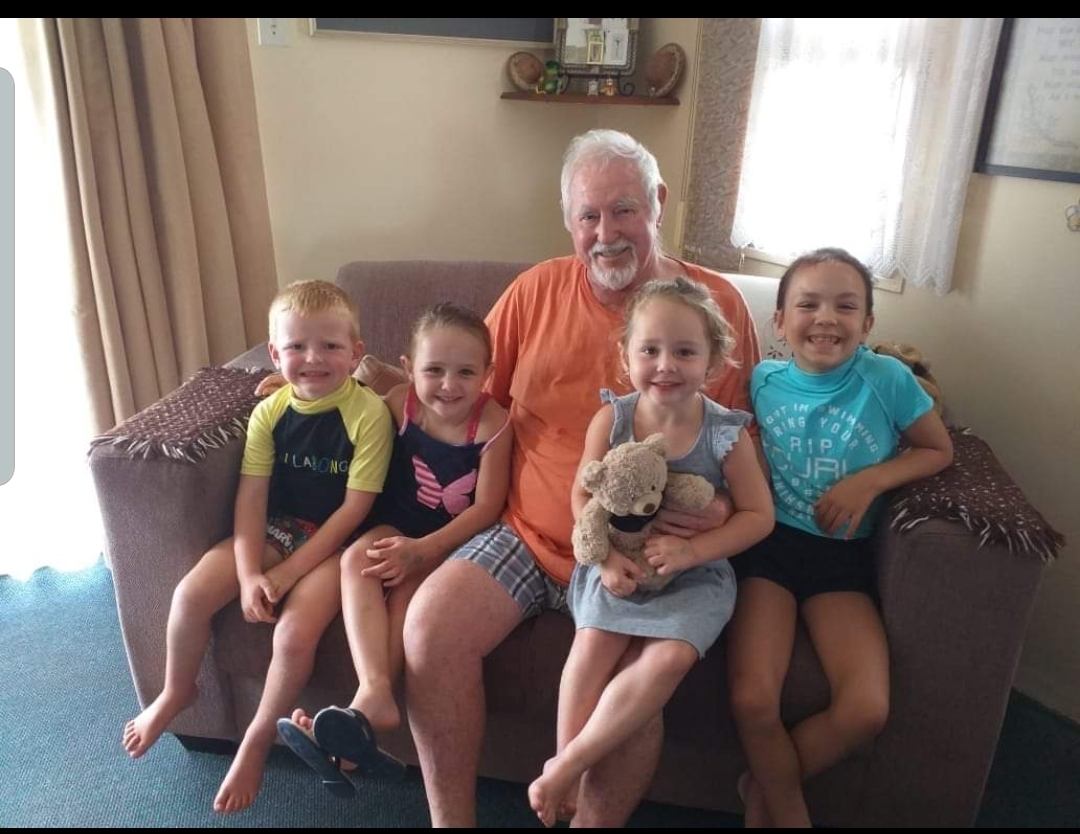
Turning full-time, Eddie became the first Dunfermline player in forty years to represent Scotland when he lined up against Czechoslovakia on 29th November 1961in a World Cup play-off match in Brussels. The Scots went down 4-2 against the eventual World Cup runners-up but Eddie was to earn a second cap in a friendly against Uruguay the following May. 1961/62 also saw him play four games for the Scottish League as well as the first six of Dunfermline’s European matches although this was to be the last season that he was chosen ahead of Herriot. The only substantial run of matches Eddie was to enjoy in 1962/63 occurred because of an injury to his rival.
On 20th August 1963, after making 172 appearances for Dunfermline, Eddie was sold for £5,500 to Middlesbrough, where he went on to play in 95 league matches before returning to Scotland briefly to join Falkirk.
Eddie emigrated to South Africa in 1968 and turned his attention to coaching football there. His daytime job was with Prime Media In Store, a store advertising company in South Africa, but he started coaching at PE City, the club in his hometown of Port Elizabeth. He then moved to East London, where he remained for the rest of his life, to take on the manager’s role at East London United.
He encouraged Scots to join his club, among them Alex Hamilton formerly of Dundee, Bobby Braithwaite who played for Northern Ireland with George Best, and Billy Higgins who played with Hearts and as a result took East London to fourth place in the National League. Later, his success continued in the amateur Inter Province competition where he took Border State to success, winning the Currie Cup for the first time.
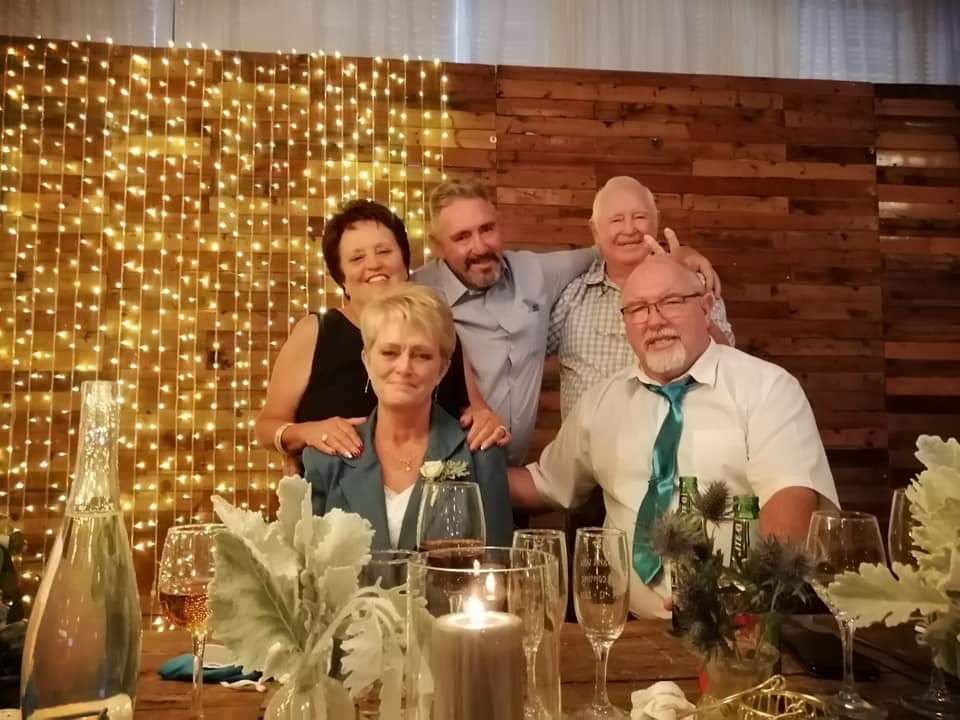
When he retired from football, Eddie took up bowls, and typically perhaps, did so with great enthusiasm. For many years he was a member of the club’s bowling team, and also an important member of their Committee. He did so much work for the club that they named the clubhouse overlooking the bowling green, ‘Eddie’s Deck’ in his honour, and his sign is still there today.
More recently Eddie spent his time at home in the company of his family, all of whom are in South Africa. As well as his two sons Brian and Paul, Eddie also enjoyed the company of six grandchildren and six great-grandchildren. His health was not too great and Brian’s wife Kim had been looking after him. He recently was admitted to hospital to improve his blood circulation below his knee but tragically he contracted Covid-19 while in hospital and went downhill quite rapidly and died on Thursday 28 January at 10.30pm.
Eddie’s son Brian gave his own thoughts on his father’s passing:
“We will miss him very much. He was a great family man and he loved being with his great-grandchildren. We know how much he meant to Dunfermline but Dunfermline also meant so much to him – all he ever talked about was Dunfermline.”
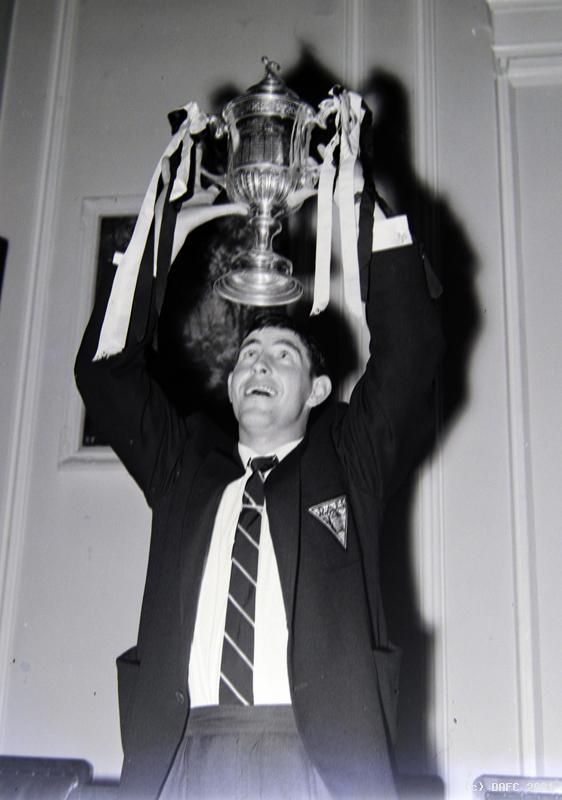
Pars Chairman Ross McArthur wanted to give his own tribute to Eddie and we are sure that his thoughts will be echoed by Pars fans everywhere:
“We inducted Eddie Connachan into the Dunfermline Athletic Hall of Fame in 2007. We often talk about legends in football, perhaps using the term rather loosely, but to Pars fans Eddie was, and will remain as long as this club exists, one of the greatest legends of them all. Whether you are 7 or 70, if you are a fan of Dunfermline Athletic, you will know about Eddie Connachan’s incredible goalkeeping display in the 1961 Scottish Cup Final.
"That performance alone gave this football club belief that it had never previously enjoyed, and his name will forever be associated with one of the greatest achievements in this club’s history. All our thoughts are today with Brian and Kim and Paul and Cindy, and all of Eddie’s family at this sad time.”
Dunfermline’s 1961 Scottish Cup win
Views : 4,603
Related Stories
- 1961 Scottish Cup Final
- 1961: Celtic 0 Dunfermline 2
- 1961 Scottish Cup Winners
- The Third Hall of Fame - March 2007
- Eddie at East End Park in 2011

